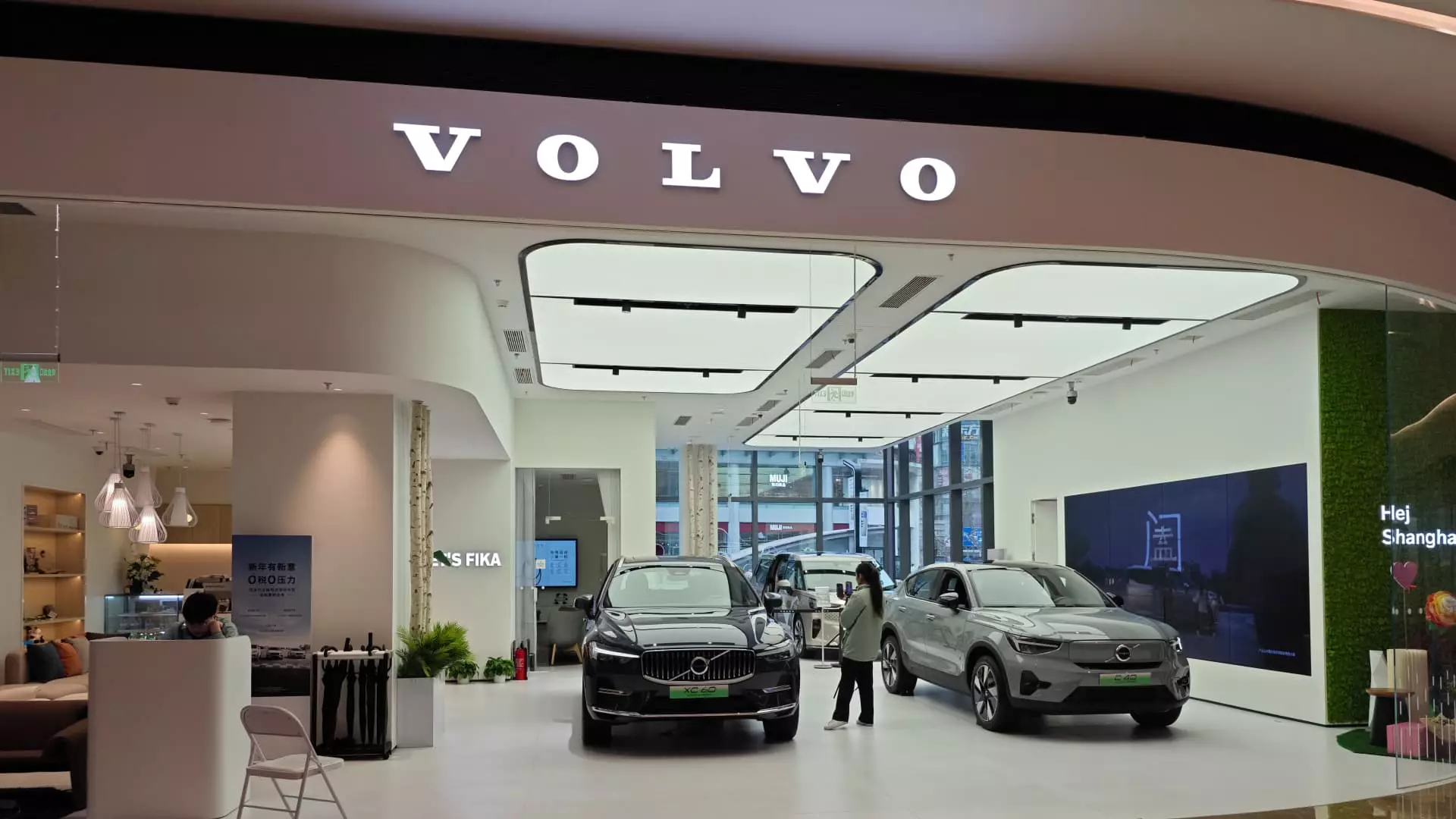Volvo Cars, a Swedish automaker majority-owned by China’s Geely Holding, recently announced a shift in its margin and revenue targets. The company is now aiming for an EBIT margin goal of 7-8% by 2026, down from its previous target of “above 8%.” This change is attributed to increased complexity, especially concerning global trade and tariffs. Additionally, Volvo Cars has decided to focus on outgrowing the premium car market until 2026, as opposed to sticking to its initial revenue target range of 500-600 billion Swedish kronor.
Challenges in the Automotive Industry
The automotive industry is facing numerous challenges, including ever-shifting international trade disputes and tariffs that have proven to be a major headache for automakers. The geopolitical landscape between the European Union, China, and the U.S. is constantly changing, making it difficult for companies to navigate smoothly. Moreover, the industry is currently undergoing a significant transition towards electric vehicles (EVs), which further adds to the complexity.
Volvo Cars’ decision to no longer target 100% all-electric vehicle sales by 2030 is influenced by various factors such as consumer demand, slow rollout of charging infrastructure, and the withdrawal of government incentives in some markets. The company is now aiming for a 90-100% range of electric vehicles, allowing mild hybrid models to still be sold. Mild hybrids, which combine internal combustion engines with electric assistance, offer a more versatile option for consumers.
In the midst of these changes, Volvo Cars is extending its partnership with U.S. chip giant Nvidia to develop advanced driving assistance and autonomous driving features. The company is also shifting to a “single technology stack” in an effort to reduce the costs of EV manufacturing. These strategic moves signify Volvo Cars’ commitment to innovation and adapting to the evolving automotive landscape.
Sales Performance and Future Outlook
Despite the challenges faced by the industry, Volvo Cars reported a 3% year-on-year increase in global sales in August, driven by significant growth in Europe. However, sales in China experienced a notable decline. Fully-electric and plug-in hybrids accounted for nearly half of the total vehicle sales in August 2024, highlighting the increasing demand for electrified models. Looking ahead, Volvo Cars remains committed to fully electric sales in the long term, as market conditions become more favorable.
Volvo Cars’ revision of its margin and revenue targets reflects the dynamic nature of the automotive industry, particularly in the context of the growing emphasis on electric and hybrid models. By adapting to changing consumer preferences and market conditions, Volvo Cars is positioning itself for future success in a competitive and transformative industry landscape.


Leave a Reply